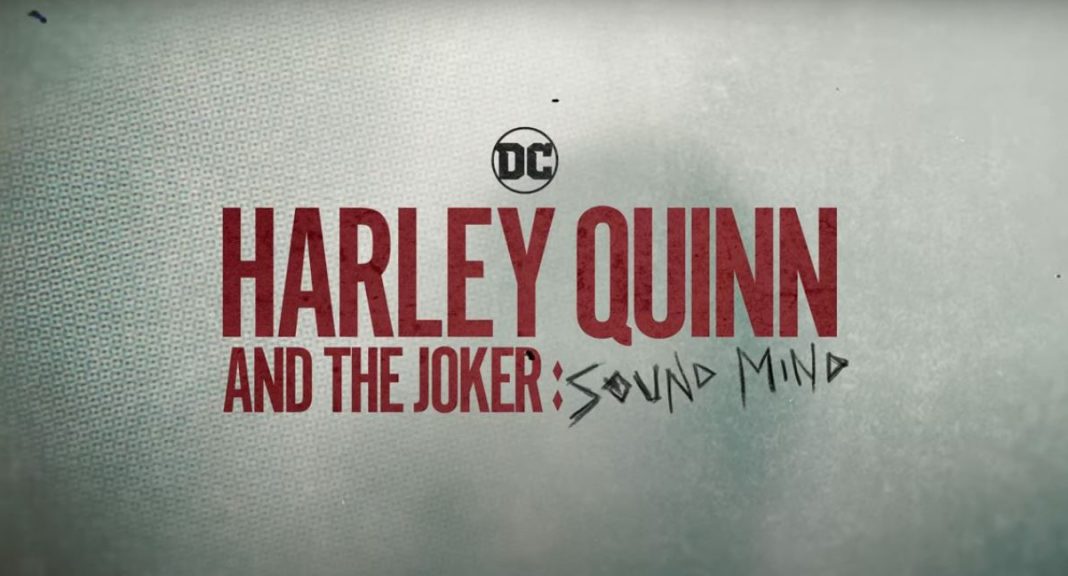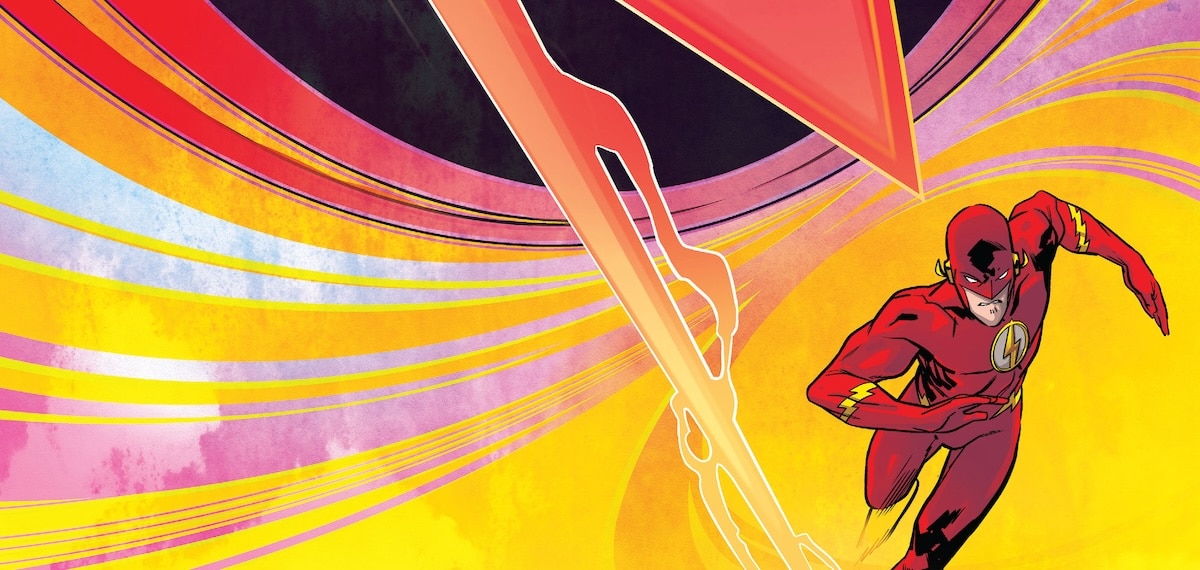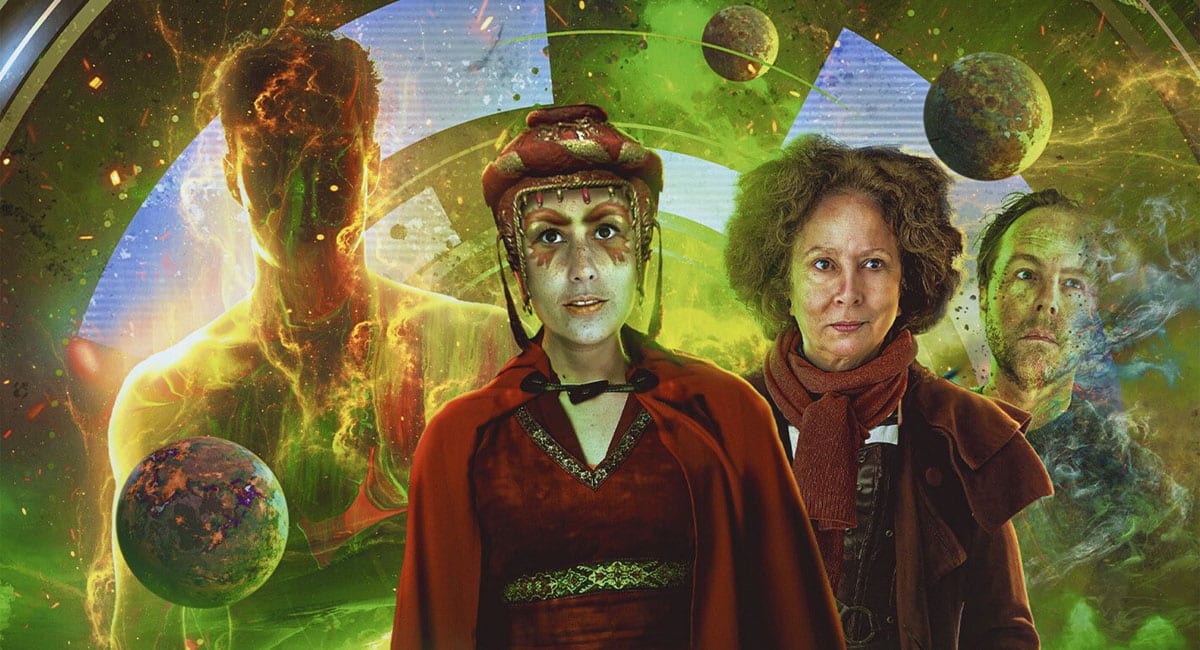Harley Quinn’s origin story has been reinterpreted more times than perhaps any other character in comics in such a short time since she was created. For those who grew up watching Batman: The Animated Series, she was an extension of the Joker, a frustrated but wholly infatuated lover that famously asked her clown boyfriend to “rev up your Harley” in an attempt to stop him from obsessing over Batman. Throughout DC’s many reboots and the the arrival of DC Comics’ Black Label imprint, the character’s kept to her background in psychiatry as the catalyst that leads to her fateful encounter with the Clown Prince, but key details have been altered and moved around to build upon her personality to not force her into a permanent Joker-centric existence.
Spotify’s new podcast series Harley Quinn and The Joker: Sound Mind offers yet another origin story of sorts (though perhaps ‘reinterpretation’ is a better descriptor) that changes the power dynamic between the two iconic characters for a gritty story that ditches themes of co-dependence and twisted love for a look at manipulation and social anxiety.
The seven-episode series sees Harleen Quinzel (played by Christina Ricci) working at Arkham Asylum and going through the usual motions of a sexist workplace. She’s cast aside, given cases no one wants, and diminished by competing male egos. One day, an opportunity arises. The Joker’s up for examination and Harleen wants a shot at him to try and understand the emergence of new types of villains in Gotham, especially after the arrival of The Batman (played by Justin Hartley). Problem is, Harleen’s dad is slowly dying, and any hopes of saving him are tied to a costly operation that she can’t pay for. Suddenly, The Joker (played by Billy Magnussen) starts to look like a potential solution, albeit a very scary and dangerous one.
The voice cast as a whole is terrific. Elias Koteas as Harley’s dad, Mary Holland as Magpie, and Fred Melamed as Harley’s very-easy-to-hate boss are just a few of the highlights due to their ability to help build the world of Sound Mind as a rough, relentless, and merciless place. They spew sarcasm, resignation, indifference, and anger with an ease that breathes authenticity into the story and its locations. Never was there doubt that these characters both lived and were a product of Gotham City.
Of course, the spotlight falls on Ricci, and she rises to the occasion to give fans one of the most fascinating and multifaceted interpretations of Harley in any medium. Ricci’s Harley isn’t the unhinged and flirty threat we initially saw in Batman: The Animated Series (played by Arleen Sorkin), nor the explosive manifestation of gleeful chaos she is in the Suicide Squad movies and Birds of Prey (in which she’s interpreted by Margot Robbie). She keeps her composure even when the conditions surrounding her would drive anyone else insane on the spot. She’s imposing and relatable, traits that Ricci pulls off in ways that don’t betray the character.
Magnussen’s Joker deserves special mention for not trying to ape previous iterations of the iconic villain. At times hints of Mark Hamill’s theatrical snark come through, and at others there are instances of Heath Ledger’s Joker laugh sprinkled in to amplify the crazy. The end result, though, aims at keeping things more realistic than usual, less cartoony but still recognizable.
Much the same applies to Hartley’s Bruce Wayne/Batman. The rich playboy persona comes through perfectly during the bits he’s in, which aren’t that many. It’s important to note this isn’t a Batman story. There’s a marked interest in sticking as close as possible to Harley’s experience, more than any other character. In fact, Joker’s name could’ve been struck out of the title so Harley could stand on her own just as she does in the story.
This focus on Harley’s inner struggles and life-changing decisions helps make the story’s many moral and ethical questions arrive on the scene with violent force. The story hits on many of the same notes we’ve seen before in the comics, films, and animations of the Batman universe. Ruminations on Batman being the reason why bad people dig deeper for new types of evil despite his presence, for instance, are a dime a dozen in the comics alone, but it’s Harley’s characterization that helps set it apart.
The decision to not turn Harley into a lovestruck woman that dives headfirst into the Joker’s gaze gives her a degree of agency that takes her journey into different places, into another kind of origin. Her defiance in the face of society’s unfairness and extreme injustice leads to some disturbing developments with even more serious considerations. There’s one moment in particular between her and The Joker that changes their entire dynamic in a manner that will shock listeners once they consider the long-term implications. Ricci and Magnussen bring the best out of each other here to add another compound fracture to their already troubled psyches.
Harley Quinn and The Joker: Sound Mind does more than enough to earn a place in Harley’s legacy as one of the most complex interpretations of the character thus far. While some of the debates found throughout the seven episodes aren’t entirely new, the cast’s performances elevate them and infuse them with a whole range of emotions that justify further exploration. More importantly, though, is the realization that Christina Ricci now stands as one of the most impressive Harleys we’ve had in the character’s history. It’s reason enough to flirt with the madness contained within Sound Mind.










Amazing podcast! Loved the story and the voice actors!
The best part of the series is Harleen’s motivation for turning her back on her career, following the Joker, and eventually becoming Harley Quinn. It makes sense and reflects the losses she’s suffered.
Comments are closed.